Assassination Of Haitian President Jovenel Moise: What We Know
The assassination of Haitian president Jovenel Moise has plunged the impoverished Caribbean nation into crisis.
Here's what we know about the attack:
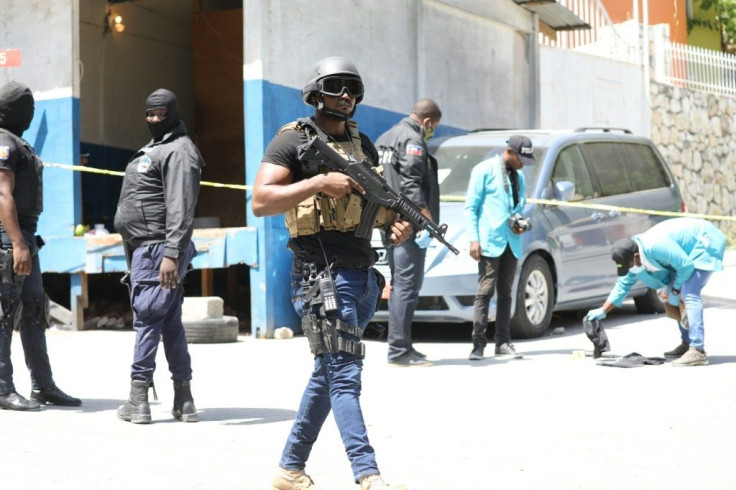
Early Wednesday, around 1:00 am local time, gunmen attacked Moise's heavily guarded private residence in the capital Port-au-Prince.
Moise was shot dead and his wife, Martine, critically wounded. She was rushed to a local hospital and later evacuated to Miami for treatment. Her condition is "stable," interim Prime Minister Claude Joseph said on Wednesday.
Magistrate Carl Henry Destin told the Nouvelliste newspaper that Moise had been shot 12 times and his office and bedroom ransacked.
The motive and identities of the assailants are unknown.
A businessman, Moise, 53, was elected president of Haiti in 2016 on a pledge to boost the economy of the poorest country in the Americas.
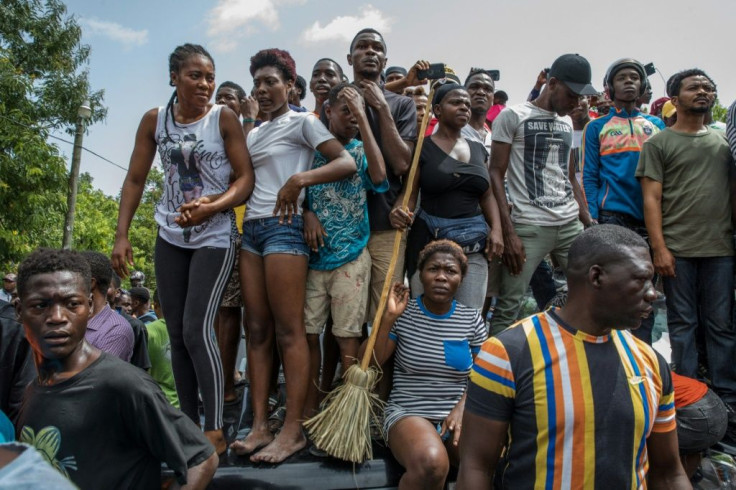
He took office on February 7, 2017, but has presided over a deteriorating political and security situation with gangs running rampant and constant political tensions.
The end date of Moise's mandate had been in dispute with the late president maintaining that his term of office ran until February 7, 2022, but others saying it ended on February 7, 2021.
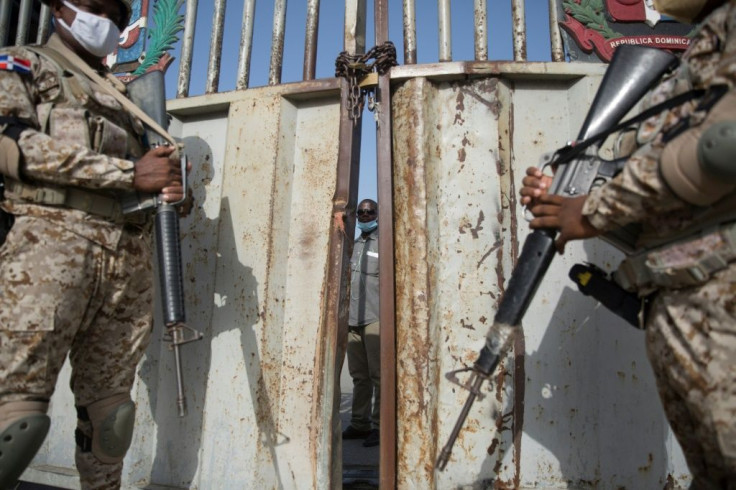
Joseph said the assassination was carried out by "foreigners who spoke English and Spanish."
Haiti's ambassador to Washington, Bocchit Edmond, said the killers were "professional" mercenaries disguised as US Drug Enforcement Administration (DEA) agents who carried out a "well-orchestrated attack."
"We think they are mercenaries," he said.
Haiti's police chief Leon Charles said the security forces engaged the suspected assailants in a gun battle on Wednesday.
He said the hit squad was believed to be made up of 28 attackers, including 26 Colombians and two Americans of Haitian origin.
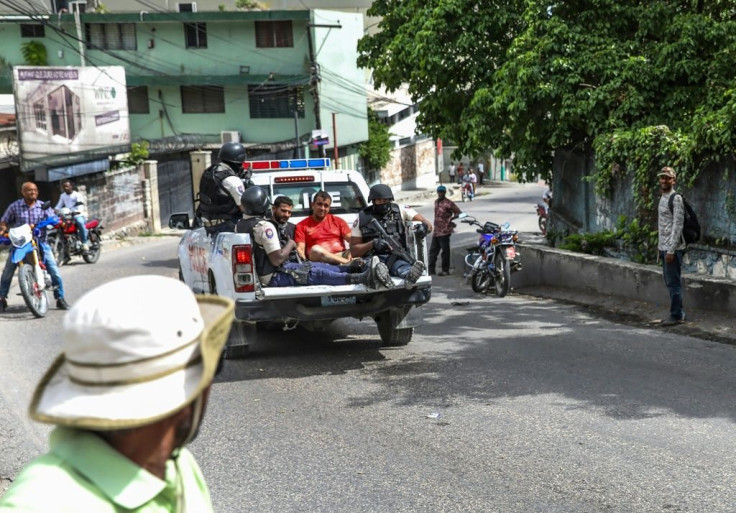
Three gunmen were killed by police and 17 suspects were taken into custody, while eight members of the hit squad are at large, Charles said.
Three police officers who were taken hostage were freed, he added.
Police paraded some of the suspects before the media Thursday, along with Colombian passports and weapons they had seized.
Authorities have caught the perpetrators of the attack, the police chief said, but are now looking for the masterminds.
Colombian Defense Minister Diego Molano said at least six of the Colombian suspects are "former members of the army" and that Colombian police and military were cooperating with the Haitian investigation.
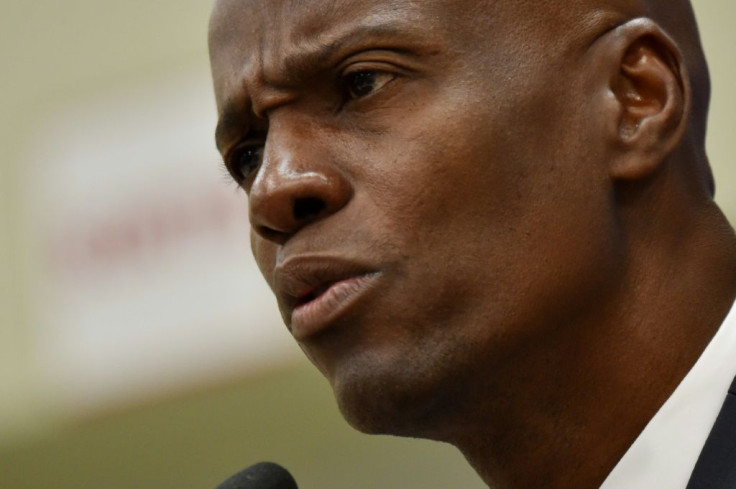
The US State Department, without confirming the arrest of any American nationals, has indicated it will help the Haitian investigation.
Taiwan on Friday said 11 suspected assassins of Moise broke into its embassy in an attempt to flee but were later apprehended by police.
Joanne Ou, a spokesperson for Taiwan's Ministry of Foreign Affairs, said the embassy was closed "for safety reasons" after the brazen murder.
"At dawn on the 8th (of July), embassy security discovered that a group of armed men had broken into the embassy courtyard. Security staff immediately notified embassy personnel and Haitian police," she told AFP.
Joseph, the interim prime minister, declared a "state of siege" in the country, giving himself increased powers for a 15-day period.
Moise had been governing by decree, without a parliament, since January 2020 and had named a new prime minister, Ariel Henry, on Monday, just two days before his death.
Henry, who had not yet assumed his duties, was the seventh prime minister named by Moise in four years and is claiming that he -- not Joseph -- is the rightful premier.
Most opposition leaders have accused Joseph of seizing power illegitimately after the assassination.
US Secretary of State Antony Blinken called Joseph on Wednesday, specifying that he had spoken to the "Acting Prime Minister" of Haiti.
Washington has called on Haiti to continue as planned with legislative and presidential elections scheduled for later this year.
In addition to political instability, Haiti has been gripped recently by an increase in gang violence including kidnappings for ransom.
Since June, clashes between rival gangs in the western part of Port-au-Prince have paralyzed traffic between the southern part of the country and the Haitian capital.
On June 30, 15 people died in a gun battle in the city including a journalist and an opposition activist.
The assassination of the Haitian president has left the international community pondering the future of a country plagued by political instability, poverty and natural disasters.
Fearing further unrest, the UN Security Council, the United States and European nations called for legislative and presidential elections to be held as scheduled on September 26.
A constitutional referendum was also planned for September 26. It had been initially scheduled for June 27 but was delayed because of the coronavirus pandemic.
The international airport in Port-au-Prince was closed to prevent the assailants from fleeing the country.
The neighboring Dominican Republic shut its border with Haiti and stepped up security along the frontier.
In Haiti's capital, Port-au-Prince, shops, banks and gas stations were closed, as questions swirled over who killed the president and why -- and why his security detail had failed to protect him.
© Copyright AFP {{Year}}. All rights reserved.





















